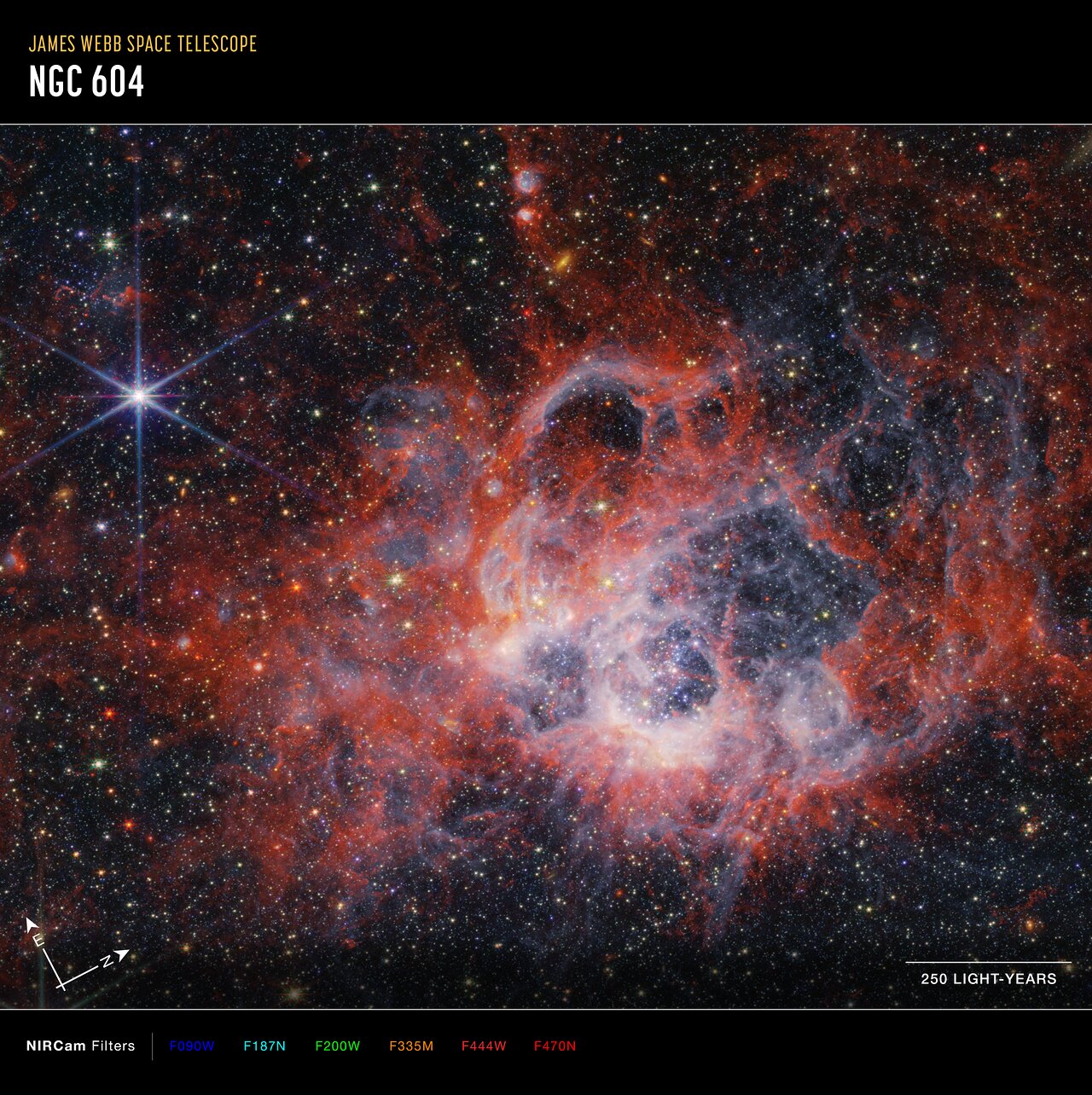NGC 604 (NIRCam image, annotated)
This image from the NASA/ESA/CSA James Webb Space Telescope’s NIRCam (Near-Infrared Camera) of star-forming region NGC 604 shows how stellar winds from bright, hot young stars carve out cavities in surrounding gas and dust.
The bright orange streaks in this image signify the presence of carbon-based molecules known as polycyclic aromatic hydrocarbons, or PAHs. As you travel further from the immediate cavities of dust where the star is forming, the deeper red signifies molecular hydrogen. This cooler gas is a prime environment for star formation. Ionised hydrogen from ultraviolet radiation appears as a white and blue ghostly glow.
NGC 604 is located in the Triangulum Galaxy (M33), 2.73 million light-years away from Earth. It provides an opportunity for astronomers to study a high concentration of very young, massive stars in a nearby region.
[Image description: At the centre of the image is a nebula on the black background of space. The nebula is composed of clumpy, red, filamentary clouds. At the centre-right of the red clouds is a large cavernous bubble, and at the centre of the bubble there is an opaque blue glow with speckles of stars. At the edges of the bubble, the dust is white. There are several other smaller cavernous bubbles at the top of the nebula. There are also some smaller, red stars and a few disc-shaped galaxies scattered about the image.]
Credit:NASA, ESA, CSA, STScI
About the Image
| Id: | weic2407c | |
|---|---|---|
| Type: | Collage | |
| Release date: | 9 March 2024, 21:30 | |
| Related releases: | weic2407 | |
| Size: | 4159 x 4174 px | |


